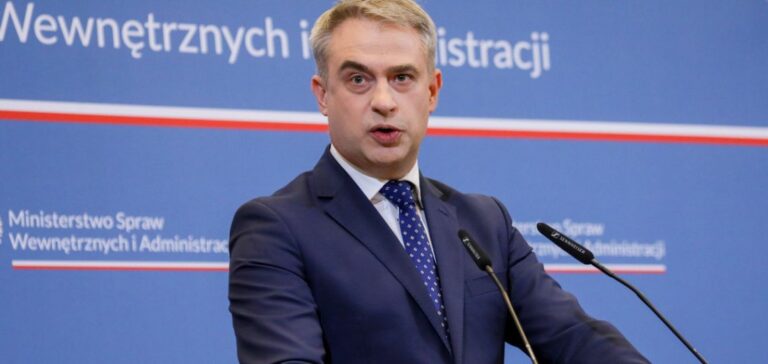Poland’s Deputy Prime Minister, Krzysztof Gawkowski, has categorically rejected recent accusations that Poland helped organize the sabotage of the Nord Stream gas pipelines in the Baltic Sea.
These accusations, made by August Hanning, former head of the Bundesnachrichtendienst (BND), suggest that Poland provided logistical support to a Ukrainian team responsible for the attack, at the instigation of its leaders.
Gawkowski calls these allegations “lies”, attributing them to a disinformation campaign orchestrated by Russia.
Hanning’s claims, echoed by several media outlets, posit that the operation required an agreement between the Ukrainian and Polish presidents.
Warsaw, in response, maintains that no evidence can support these accusations, insisting that Poland played no part in the incident.
Investigation and prosecution
As part of the German investigation, the Polish prosecutor’s office has confirmed that it has received an arrest warrant from Berlin for a Ukrainian citizen living in Poland, suspected of having taken part in the operation.
The latter had reportedly left Polish territory before the warrant was issued.
The German investigation is continuing, but Warsaw is adamant that it will not become involved.
This situation highlights the complex relations between Eastern European countries and Russia, exacerbated by recent conflicts.
The Nord Stream affair is part of a series of accusations and counter-accusations between the states involved, each seeking to absolve itself of any responsibility.
Ukrainian reaction and geopolitical implications
Ukraine, through presidential advisor Mykhailo Podoliak, also rejects any involvement, calling the accusations “nonsense”.
Kiev maintains that there is no strategic interest in sabotaging an infrastructure so vital to Europe’s energy supply.
These denials come at a time when each side is seeking to defend its position while accusing the other of manipulation.
The Nord Stream sabotage affair has major repercussions for European energy security.
It has heightened geopolitical tensions and raised the question of how to protect critical infrastructures in the face of increasingly sophisticated threats.
The response from the Polish and Ukrainian authorities reflects their determination to maintain the integrity of their positions, while highlighting the dangers of disinformation in an environment already under pressure.






















